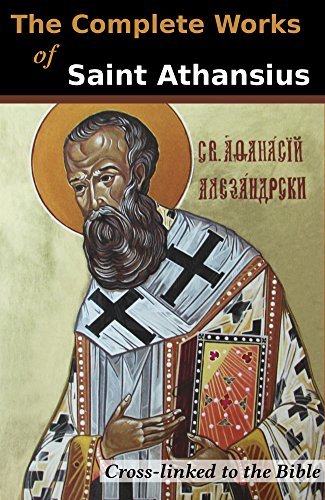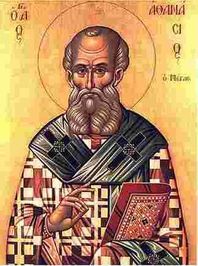
Author

born perhaps 293 Greek patriarch Saint Athanasius, known as "the Great," of Alexandria led defenders of Christian orthodoxy against Arianism. An Athanasian follows him, especially in opposition to Arianism. Christians attributed Athanasian Creed, which dates probably from the fifth century, but people now consider its unknown origin. People also refer to Athanasius (Arabic: البابا أثناسيوس الرسولي, as the Confessor and the Apostolic, primarily in the Coptic Church; he served as the twentieth bishop. From 8 June 328, his episcopate lasted, but four different Roman emperors ordered him to spend five exiles for 17 years. People consider this renowned theologian, a Father of the Church, the chief of Trinitarianism, and a noted Egyptian of the fourth century. People remember his role in the conflict. In 325, Athanasius at the age of 27 years played a role in the first council of Nicaea. At the time, he served as a deacon and personal secretary of Alexander, the nineteenth bishop. Constantine I convoked Nicaea in May–August 325 to address the position of Jesus of Nazareth of a distinct substance from the Father. Three years after Nicæa and upon the repose of Alexander, bishop, he served in June 328 at the age of 30 years as archbishop. He continued to the conflict for the rest of his life, and theological and political struggles engaged him against Constantine and Constantius II, the emperors, and against Eusebius of Nicomedia and other powerful and influential churchmen. He stood as "Athanasius contra Mundum," against the world. Within a few years of his departure, Saint Gregory of Nazianzus called him the "pillar of the Church." All fathers of the Church followed and well regarded his writings in the west and the east. His writings show a rich devotion to the Word, the Son of Man, great pastoral concern, and profound interest in monasticism. The Roman Catholic Church counts Athanasius and three other doctors, and east labels him the "father." Many Protestants also celebrate him and label him "father of the canon." People venerate Athanasius on feast day, 2 May in west, 15 May in Coptic, and 18 January in the other eastern churches. The Roman Catholic Church, Orient, east, Lutherans, and Anglican communion venerate him.